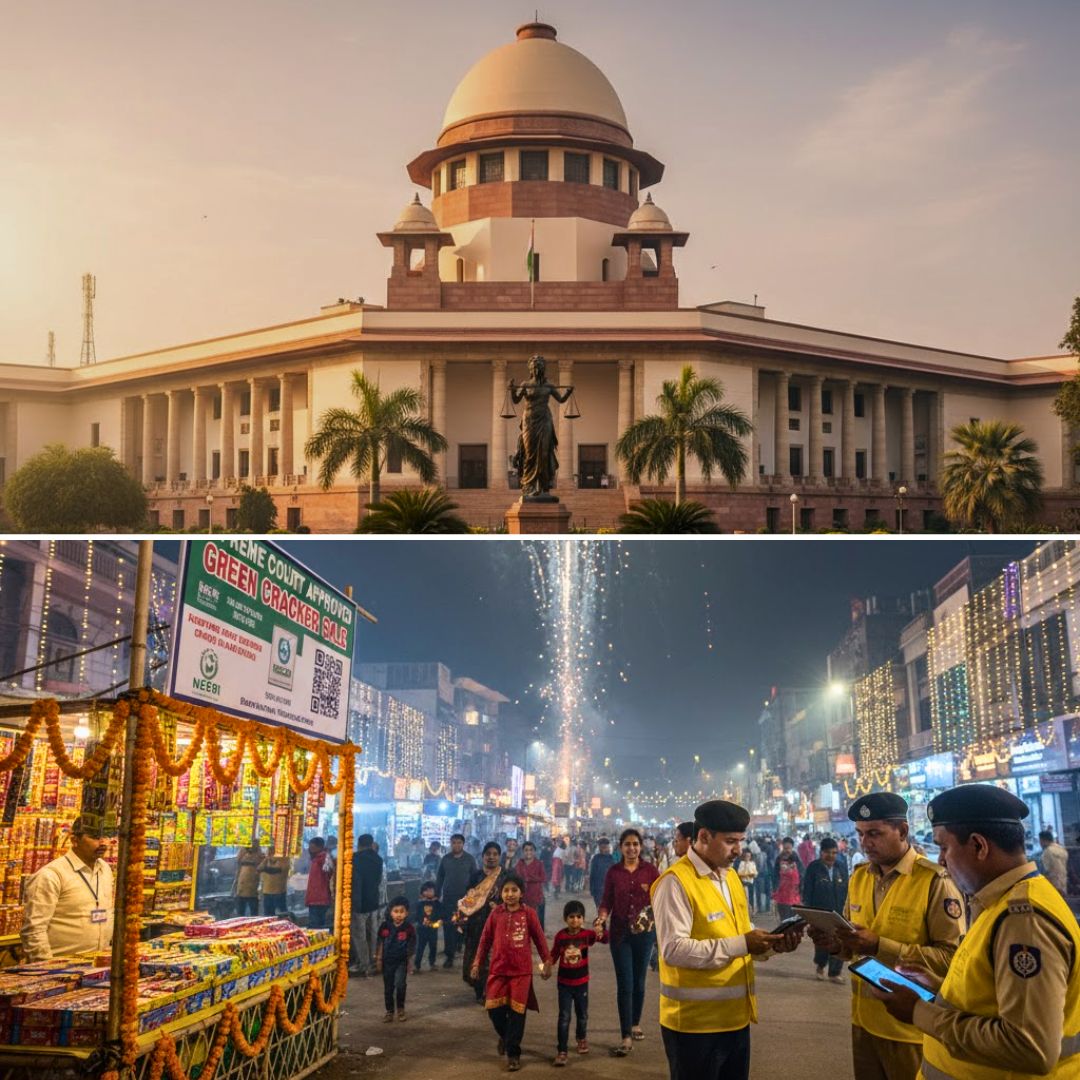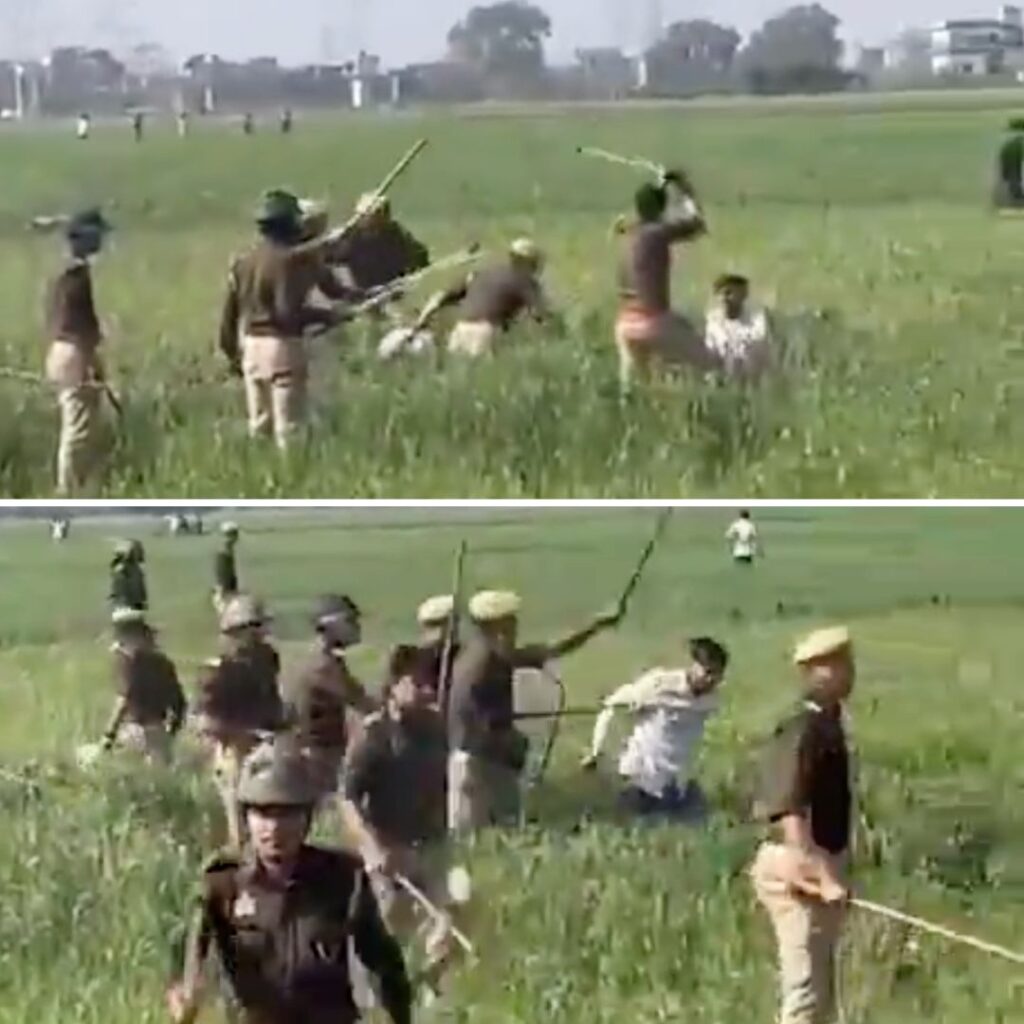In a landmark decision, the Supreme Court of India has permitted the sale and bursting of green crackers in Delhi and the surrounding National Capital Region (NCR) from October 18 to 21, 2025, just days before Diwali. The court’s ruling aims to balance cultural festivities with environmental concerns, allowing only certified, eco-friendly crackers approved by the National Environmental Engineering Research Institute (NEERI).
The decision comes after months of legal deliberations, considering pollution levels and the impact of traditional firecrackers, especially in urban areas like Delhi.
The court strictly limited the sale of these green crackers to licensed vendors operating at designated locations across NCR. Moreover, the permitted firing times are set between 6 am and 7 am in the morning and from 8 pm to 10 pm in the evening-constraining the usual burst hours to mitigate pollution spikes.
This announcement provides relief to traders and residents who argued that a complete ban might spur illegal smuggling and unregulated sales, which tend to cause more pollution. The court’s order also explicitly forbids online sales through e-commerce platforms, aiming to prevent unauthorized distribution.
Key Guidelines and Enforcement Measures
The Supreme Court’s instructions emphasize rigorous enforcement mechanisms to ensure compliance. All green crackers sold must be authorised and tagged with QR codes for authenticity, indicating NEERI approval. Local police and pollution control authorities are tasked with deploying patrol teams at designated sale points to monitor transactions.
These teams will conduct random sampling to verify the quality and legality of crackers on sale-offenders, whether manufacturers or vendors, will face penalties, including confiscation and license cancellations.
Highlighting the importance of quality assurance, the court ordered that only crackers registered with NEERI can be sold and used within the region. Licensing of vendors will be renewed for the specified period, with strict action against illegal trade.
Authorities from Delhi, Haryana, and Uttar Pradesh will work together to prevent cross-region smuggling, which has historically contributed to pollution and safety risks during festivals.
Background: From Complete Ban to Regulated Use
India has long grappled with managing the environmental fallout from firecracker emissions, often worsened during Diwali celebrations. After a partial ban in 2018, driven by alarming levels of air pollution, the Supreme Court mandated the development of eco-friendly alternatives, leading NEERI to design green crackers that emit significantly less particulate matter-roughly 20-35% less than conventional fireworks.
Despite this progress, earlier bans and restrictions have often resulted in illegal markets flourishing, with unregulated crackers causing health hazards and pollution surges.
Previous years saw full prohibitions, which led to smuggling and a spike in dangerous, unbranded crackers. The 2024 ban on manufacture and sale pushed authorities to encourage adherence to NEERI standards, while public health experts continued to warn about the dangers of air pollution during winter months.
Recognising the cultural importance of Diwali and the economic interests of local traders, the court’s current order adopts a middle path-permitting limited, controlled use of green crackers instead of a blanket ban, which can often exacerbate illegal trade.
The Logical Indian’s Perspective
This development reflects a pragmatic approach-acknowledging cultural traditions while prioritizing environmental health. The Logical Indian views this as a step towards sustainable festivities, where innovation and regulation can coexist with celebration. The decision underscores the importance of strict enforcement, public awareness, and the adoption of eco-friendly practices for future festivals.
Celebrations should foster joy and togetherness, not pollution and health hazards. As citizens prepare for Diwali, it is crucial for communities, authorities, and manufacturers to work together to ensure compliance and promote cleaner alternatives.












